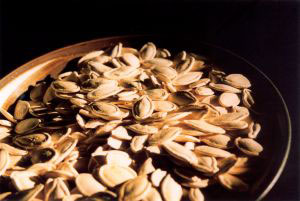The vitamin guide has covered a variety of essential vitamins our bodies need and to conclude the series we’ll be ending with zinc, which is actually a mineral, but worth covering for its importance in body function as well.
Zinc is essential for growth and development throughout all of our life stages. It supports our immune system and is involved in the healing of our wounds along with helping to form proteins. If you don’t get enough zinc in your diet you could see the deficiency through hair loss, diminished appetite, slowed growth rate, diarrhea, and delayed wound healing.
Zinc deficiencies can occur from low dietary intake of foods high in zinc, from growth spurts specifically during puberty when the body needs more, or if it is poorly absorbed in the system. The recommended daily allowance is as follows:
- Female adults aged 19+ should have roughly 8 milligrams a day
- Male adults aged 19+ should have roughly 11 milligrams a day
- Females and Males aged 14-18 (typical growth spurt phase) should have between 9-11 milligrams
Getting zinc in your diet is relatively easy and is typically done through a daily multi-vitamin, but can also be done through eating foods rich in the mineral. The following foods are the best sources:
- Whole grains (as refined grains remove the elements of the grain that contains the zinc mineral)
- Beef
- Poultry (chicken/turkey)
- Shellfish
- Pumpkin seeds (good option for vegetarians)
This concludes the vitamin guide series. I hope you have found it helpful and are incorporating the foods suggested to help ensure you get the vitamins your bodies need to function at their most optimal level. I also recommend speaking with your doctor to make sure your body has the optimal levels for the various vitamins needed. You can also reference all of the vitamin guides here:
